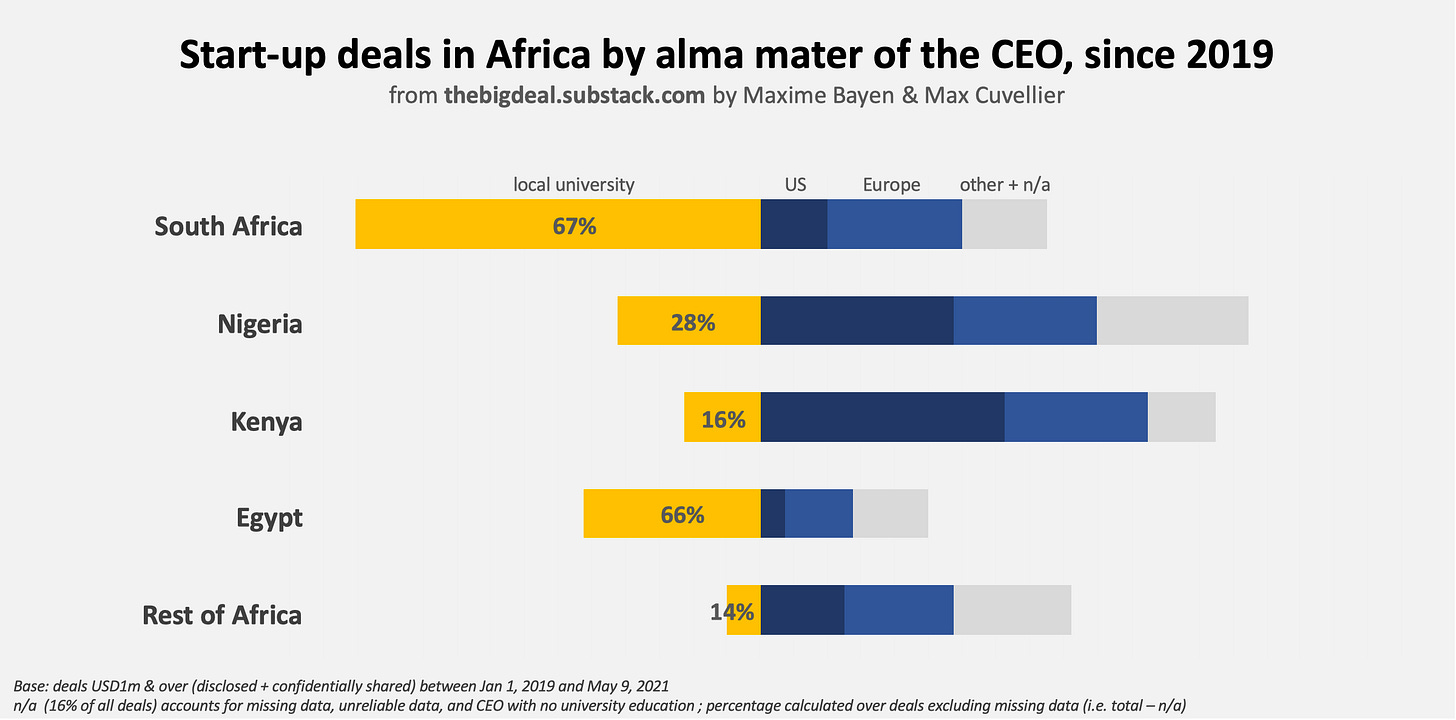Where did your CEO study?
🧑🎓 Two thirds of the start-ups CEOs who raised funding in Africa since 2019 have studied outside the continent, with strong differences depending on the country
For this week’s analysis, we’ve tried something different, and looked at where the CEOs of the start-ups in Africa that raised $1m+ since 2019 went to university (if we could find the data, which was the case for 84% of the deals). Overall, 35% of the CEOs graduated from an African university; the rest - i.e. the majority - mostly graduated from either a European (31%) or US (29%) university. There are big differences however depending on the country. In South Africa and Egypt in particular, about two thirds of the deals were signed by a CEO who had studied locally; these locally-educated CEOs represent an even larger share if we look at the amount raised: 81% and 77% respectively. The percentage of deals raised by CEOs educated locally drops to 28% for Nigeria, and just 16% in Kenya. Kenya is also the only one of the ‘Big 4’ where the share of funding raised by CEOs who studied locally (11%) is lower than the share of deals, meaning that these CEOs raised on average less that their counterparts who studied abroad. Overall, when the CEO studied in Africa, there are very few cases - if any in the Big 4 - where they studied outside of the country where their start-up is headquartered. Now if we look at the numbers through a gender lens, it appears that female CEOs are less likely to have studied on the continent compared to male CEOs (26% vs 36%); 90% of the amount raised by female CEOs goes to CEOs who have studied outside the continent. Finally, in terms of individual universities, all countries considered, the University of Cape Town tops the list (26 graduates), followed by four non-African universities: Harvard (12), Oxford (11), MIT (11) and Columbia (9). In Nigeria the university with most graduates is OAU; in Egypt, the American University in Cairo leads the way. One last note: these numbers should not be read as an incentive for future CEOs to study abroad, or for investors to focus on foreign-educated CEOs, but rather as a recognition that great ecosystems - like in Egypt, South Africa and to a lesser extent Nigeria - can be built by majority locally-educated entrepreneurs.


